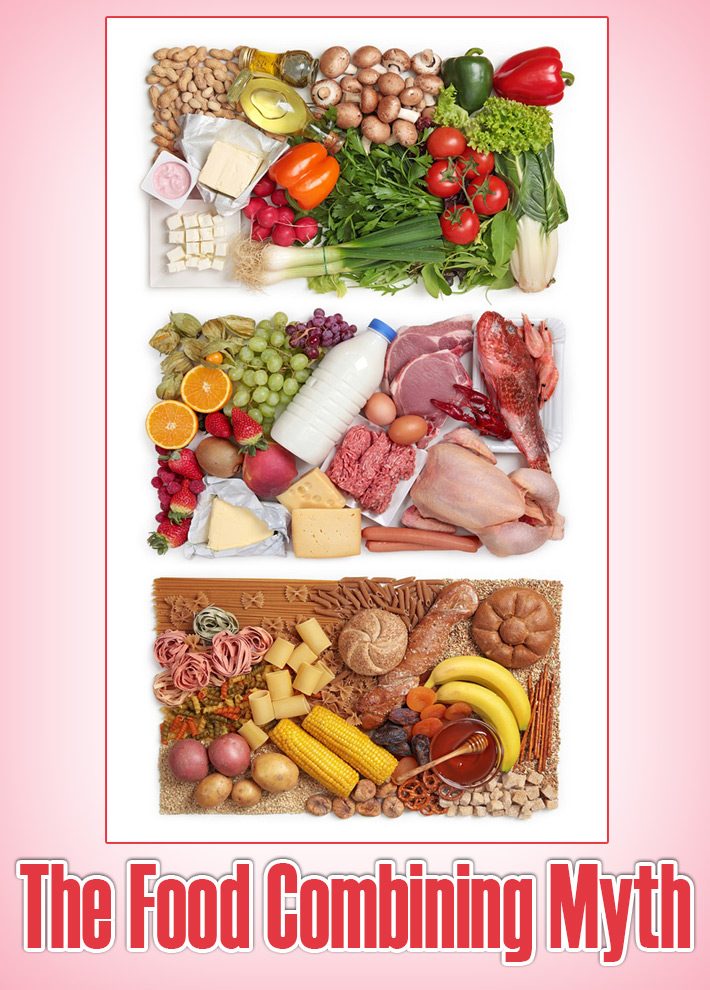
Some health myths never die. Among them are all sorts of oddball “food combining” notions espoused in books, articles, and on the Internet, claiming that it’s vital to eat foods in certain orders or combinations.
The idea behind food combining diets is that different foods digest at different rates in the body and require different digestive environments. And, therefore, that foods need to be eaten in groups and at specific times that compliment these factors. The basic food combining principles are to avoid combining starches and protein in the same meal, and to always eat fruit before a meal, not after. People who follow the food combining diet claim this is because proteins need an acidic environment to be broken down, whereas carbohydrates require an alkaline environment.
The Food Combining Facts
One common, never-dying belief, for instance, is that it’s important to always eat fruits raw and not in combination with other foods, because otherwise they will ferment, “rot,” and “turn toxic” in the stomach. This is the foundation of many odd food-combining diets.
There’s no evidence to support such contentions. The fact is, you can eat fruit any time—as part of a meal, as dessert, or as a snack. Raw or cooked, it does not ferment inside you.

The human digestive system handles all food combinations very efficiently. As foods are broken down into their various components, they pass into the small intestine, where bacteria are naturally present. The bacteria sometimes act upon certain compounds in fruits and vegetables and give you gas, but this has nothing to do with rotting or in what combination you ate the foods.
The overwhelming weight of evidence is on the side of a varied, balanced diet, eaten in any order. In fact, most vitamins and minerals are best absorbed and utilized when consumed as part of a complex mixture of food. For instance, the vitamin C in your fruit will help you absorb the iron in the grains you eat at that meal. Basically, food combining is definitely not essential for good digestion or health, and isn’t scientifically backed up, so take the claims with a big grain of salt.




Leave a Reply